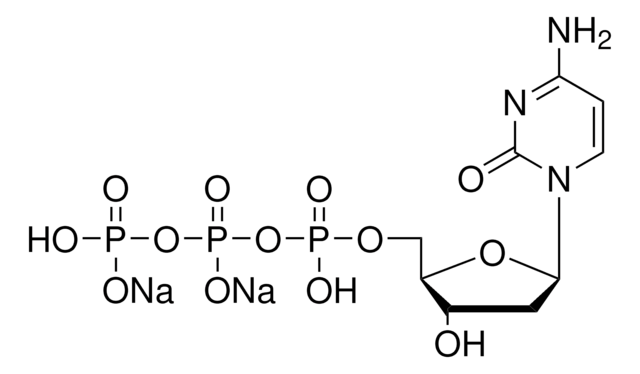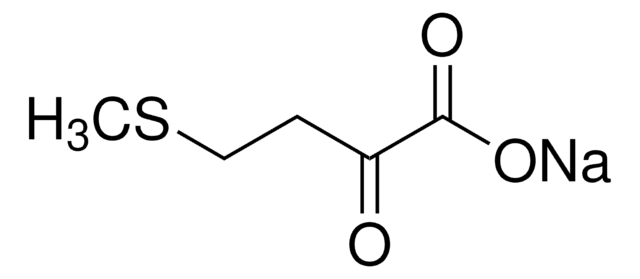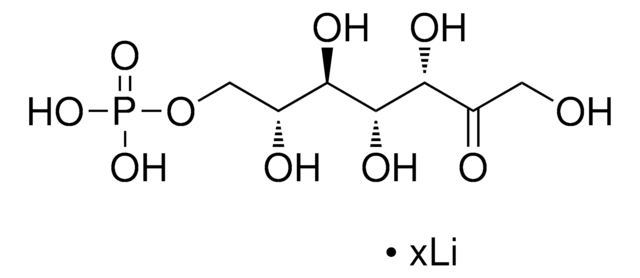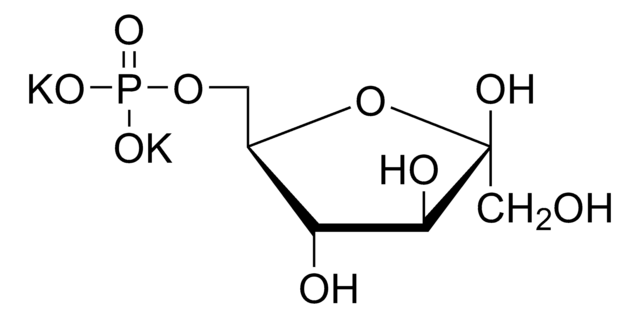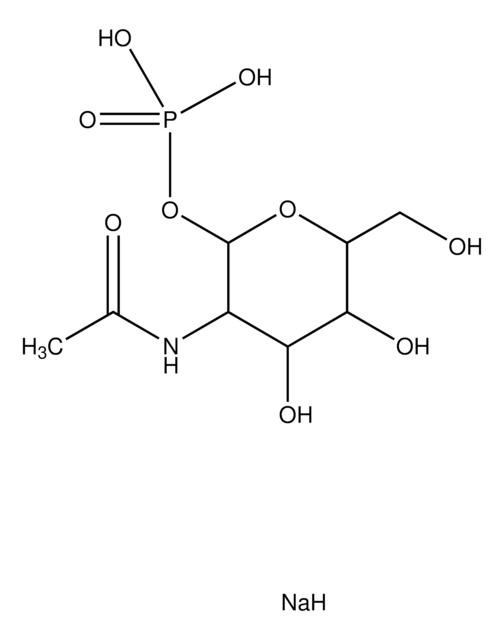90374
Sodium mercaptopyruvate dihydrate
97.0-103.0% (NT)
Synonym(s):
3-MP, 3-Mercapto-2-oxopropionic acid sodium salt dihydrate, 3-Mercaptopyruvic acid sodium salt dihydrate
About This Item
Recommended Products
Quality Level
Assay
97.0-103.0% (NT)
form
solid
composition
sulfur content, 17.5-18.5%
color
white to off-white
storage temp.
2-8°C
SMILES string
O.O.[Na+].[O-]C(=O)C(=O)CS
InChI
1S/C3H4O3S.Na.2H2O/c4-2(1-7)3(5)6;;;/h7H,1H2,(H,5,6);;2*1H2/q;+1;;/p-1
InChI key
UTBPRNHFBUIAMM-UHFFFAOYSA-M
Biochem/physiol Actions
Packaging
Other Notes
Signal Word
Warning
Hazard Statements
Precautionary Statements
Hazard Classifications
Eye Irrit. 2 - Skin Irrit. 2 - STOT SE 3
Target Organs
Respiratory system
Storage Class Code
11 - Combustible Solids
WGK
WGK 3
Flash Point(F)
Not applicable
Flash Point(C)
Not applicable
Regulatory Listings
Regulatory Listings are mainly provided for chemical products. Only limited information can be provided here for non-chemical products. No entry means none of the components are listed. It is the user’s obligation to ensure the safe and legal use of the product.
JAN Code
90374-500MG:
90374-100MG:
90374-BULK:
90374-10MG:
90374-VAR:
Choose from one of the most recent versions:
Certificates of Analysis (COA)
Don't see the Right Version?
If you require a particular version, you can look up a specific certificate by the Lot or Batch number.
Already Own This Product?
Find documentation for the products that you have recently purchased in the Document Library.
Customers Also Viewed
Our team of scientists has experience in all areas of research including Life Science, Material Science, Chemical Synthesis, Chromatography, Analytical and many others.
Contact Technical Service